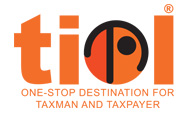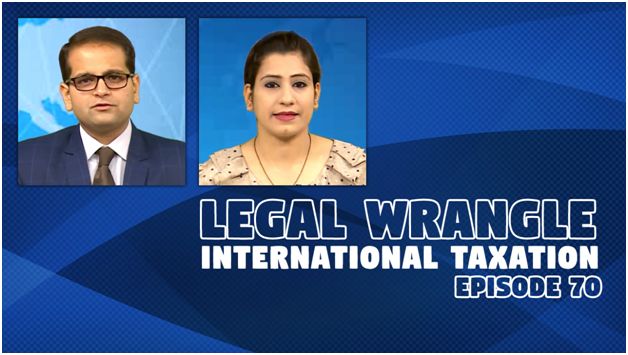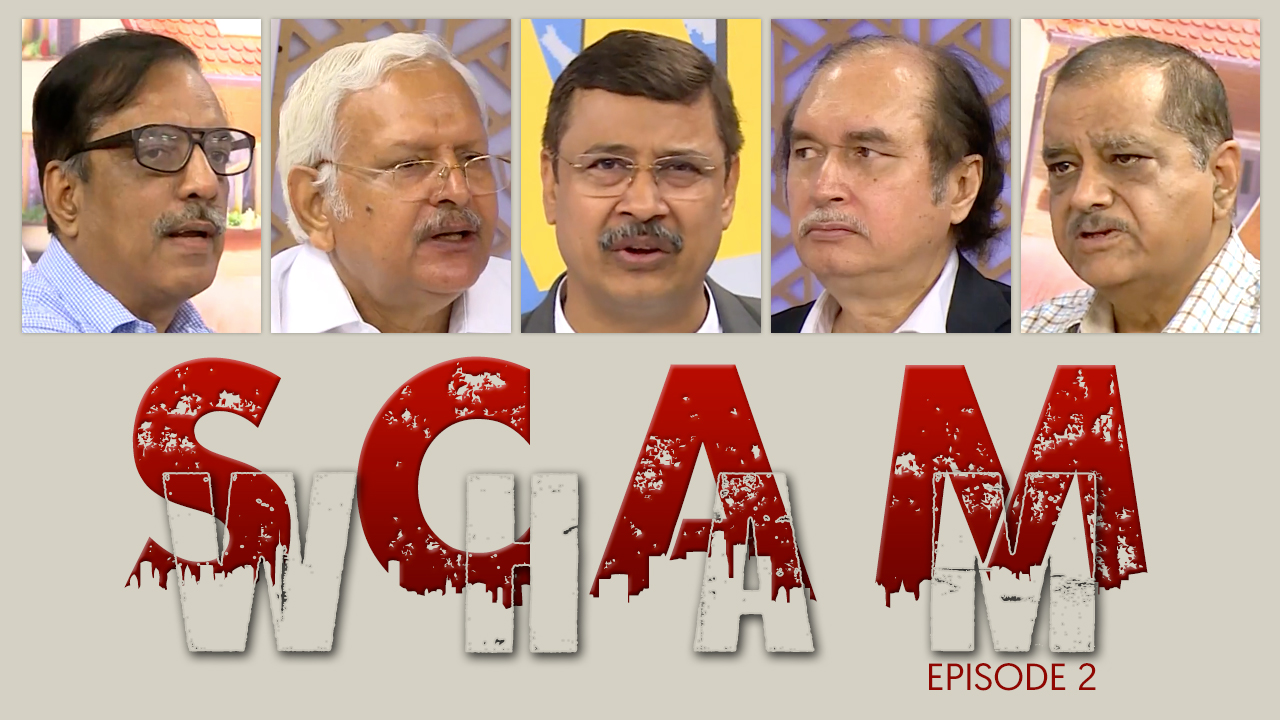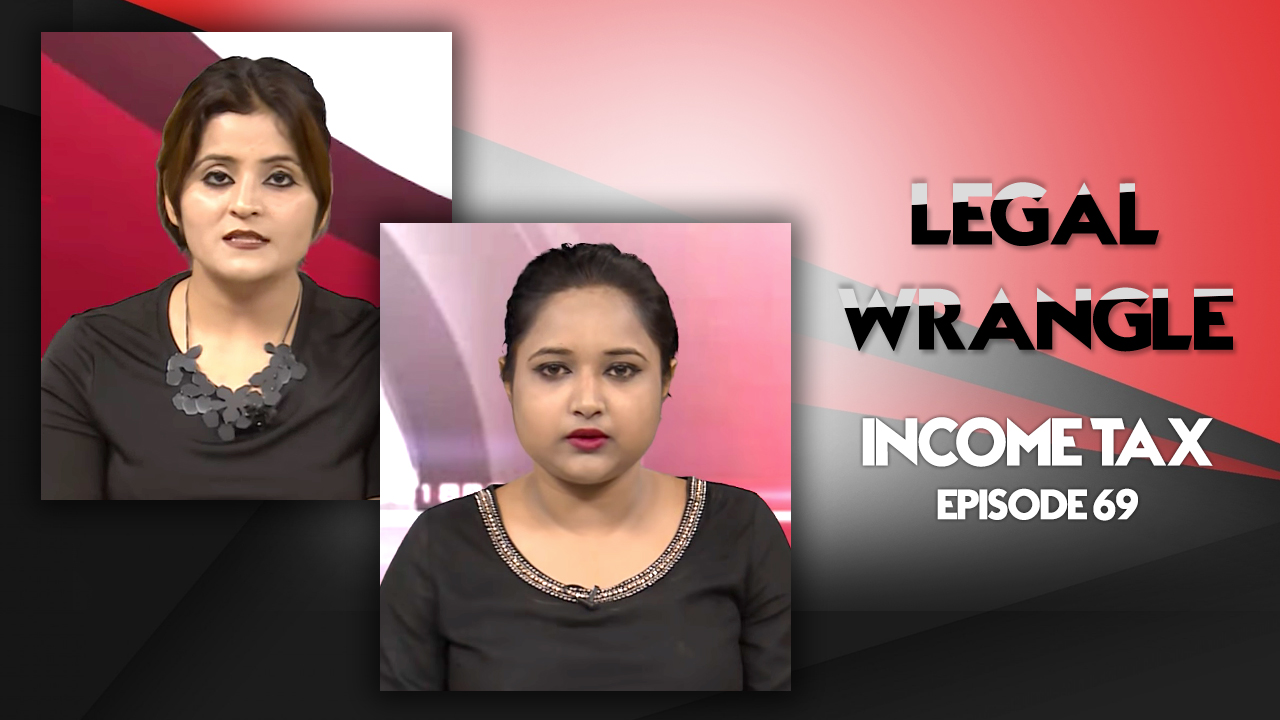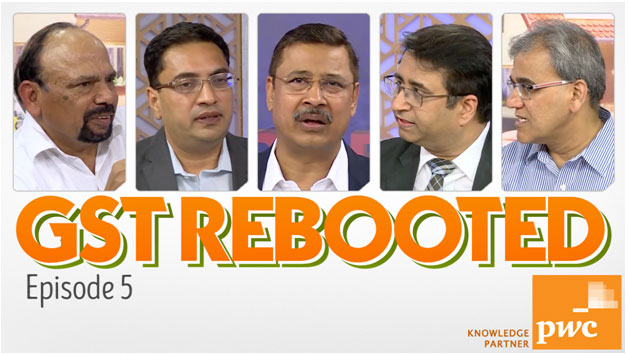SERVICE TAX SECTION
2018-TIOL-567-HC-P&H-ST + Story
Krishna Cable TV Network Vs UoI
ST - Interpretation by petitioner, as argued, if upheld, would have catastrophic effects - Clause 11.2 in the Master Circular do not mean that SCNs issued to different noticees on the same issue shall be adjudicated by one authority - Petition dismissed - Notification of 2005 appoints various officers as Central Excise Officers and specifies the monetary jurisdiction for the purpose of adjudication, whereas under the 2007 notification, the Commissioners of Central Excise have been appointed as the Central Excise Officers giving them jurisdiction throughout India, only for cases of investigation and adjudication which are assigned by the Board - Contention raised by the petitioner that the order dated 08.12.2016 passed by the Deputy Commissioner is without jurisdiction is rejected - only if similar show cause notices are issued to the same noticee by different adjudicating authorities, all such notices would be adjudicated by one adjudicating authority, i.e. the officer competent to decide the case involving the highest amount of duty - petitioners would be at liberty to avail their remedy of a statutory appeal against the impugned order dated 08.12.2016: High Court [para 12 to 16]- Petition dismissed
:
PUNJAB AND HARYANA
HIGH COURT
2018-TIOL-1040-CESTAT-MUM Prabhakarmarotraothaokar And Sons Vs CCE
ST - Appellant is engaged in acting as ‘wholesale dealer' for sale of product Jarda under the brand name SarvotkrushtNagpuriJarda manufactured by M/s. GunajiMarotraoThaokar& Co. – appellant entered into an agreement and one of the conditions was that the manufacturer gives discount to the appellant while supplying the goods for further distribution – case of department is that the said discount is nothing but a sales commission which is liable to service tax under BAS – SCN issued and demand confirmed/upheld by lower authorities – appeal to CESTAT.
Held: It is seen from the agreement that after supply of goods by the manufacturer, the ownership of goods is transferred to the wholesale distributor, the appellant – from the agreement coupled with the invoice issued by M/s Gunaji to appellant, it can be seen that the transaction is clearly of sale – manufacturer has charged 20% VAT and the transaction is clearly at arms length, hence sale is on principal to principal basis – invoice also shows that a trade discount was passed on by the manufacturer to the appellant – it is undisputed that the transaction is of sale and there is no relationship of service provider and service recipient between the manufacturer and buyer (the appellant), therefore, discount cannot be construed as commission so as to subject it to levy of service tax – sale invoice issued by appellant to various traders also shows that the appellant has paid VAT on the same – Bench is, therefore, of the clear view that trading margin cannot be subject matter of levy of service tax – impugned order is set aside and appeal is allowed: CESTAT [para 4] - Appeal allowed : MUMBAI CESTAT
2018-TIOL-1039-CESTAT-BANG
Keral State Ex Service League Vs CCE, C & ST
ST - Assessee engaged in rendering security agency service - The dispute covers the period 16.10.1998 to 31.8.2002 - The assessee is a registered society under Societies Act of 1955 - They have rendered security agency service to various organizations and collected consideration towards such service - The services were rendered to even government departments such as Income Tax and Provident Fund - Revenue was of the view that service tax was liable to be paid by assessee for the services rendered - A similar issue came up before the Punjab and Haryana High Court in case of Punjab Ex-servicemen Corporation - By following the said decision, assessee will not be entitled to claim that the society formed by ex-servicemen does not constitute a commercial concern - In a recent case of Rajasthan Ex-servicemen Ltd ., an identical issue was decided by Division Bench of Tribunal - By following the same, no merit found in appeals filed by assessee, same are dismissed: CESTAT - Appeals dismissed : BANGALORE CESTAT
CENTRAL EXCISE SECTION
2018-TIOL-1045-CESTAT-MAD
CCE Vs Schneider Electric India Pvt Ltd
CX - Assessee engaged in manufacture of moulded phase circuit breakers and were availing facility of CENVAT credit on inputs, capital goods and input services - SCN was issued proposing to deny CENVAT credit on certain input services - The main ground raised by department is that the credit has been wrongly availed by assessee on input as services were availed by other units of assessee - When assessee has taken ISD registration, no reason found to deny the credit availed on such ISD invoices, though services have been consumed in other unit of assessee - The decision relied by assessee in case of ECOF Industries Pvt. Ltd. 2011-TIOL-770-HC-KAR-ST settles this issue - Following the said decision, no ground found to interfere with the order passed by Commissioner, same is upheld: CESTAT - Appeal dismissed : CHENNAI CESTAT
2018-TIOL-1044-CESTAT-MAD
Schwing Stetter India Pvt Ltd Vs CCE & ST
CX - Assessee engaged in manufacture of "concrete mixer, pumps and concrete batching plant" - They made supplies to projects financed by World Bank, Asian Development Bank or International Organization approved by Government of India, availing exemption from excise duty under Notfn 108/1995-CE - SCNs were issued alleging that benefit of notfn was not available to assessee - Whether denial of exemption on the ground that impugned goods are supplied to contractor of project instead of Project Authorities is correct - This issue was considered by jurisdictional High Court in case Caterpillar India Pvt. Ltd. 2013-TIOL-562-HC-MAD-CX wherein High Court held that the use of phrase "supply to the projects financed by United nations or International Organization and approved by the Government of India" clearly shows that the condition for grant of exemption is supply of goods towards the project - That since the conditions are satisfied, the benefit of exempton cannot be denied stating that the goods were supplied to contractor - The Apex Court has affirmed said decision - Following the same, denial of exemption benefit on ground that the goods were cleared to contractors cannot sustain.
The second issue is with regard to denial of exemption on the basis of Explanation 2 inserted in Notfn 108/1995-CE w.e.f. 01.03.2008 - Assessee has complied with the condition of furnishing certificate of designated authorities - Department allowed clearance of goods without any murmur on validity of certificate - The department cannot later turn around to deny exemption by interpreting Explanation 2 to the effect that the exemption is not available if goods are withdrawn from project site - The contractor would not be able to retain the capital goods in project site after completion of project and the interpretation of Explanation 2 by department in this angle does not find favour - D enial of exemption is unjustified - The impugned order set aside: CESTAT - Appeals allowed : CHENNAI CESTAT
2018-TIOL-1043-CESTAT-CHD
Nsp Forging Pvt Ltd Vs CCE
CX - the assessee-company is engaged in manufacture of rough steel - On investigation, the Revenue alleged that the assessee availed inadmissible credit without actually receiving any inputs - On examining the identity of the manufacturer of such input goods, such manufacturer was found to be engaged in clandestine manufacture & clearance of input goods - It was further found that it was fraudulently passing on Cenvat credit to various manufacturers by issuing cenvatable invoices, although the goods were actually diverset elsewhere - The Revenue alleged tha the dealer who issued invoice to the assessee, was one such beneficiary of the scheme run by such manufacturer - The assessee was found to have availed credit on two occasions - The Revenue took statements of a director in the assessee firm, admitting purchase of goods from the dealer - Statements were also taken of an employee of the manufacturer firm - The assessee firm's director also admitted to having received an SCN alleging fraudulent availment & use of Cenvat credit - He also undertook to pay the relevant amount - Based on such admission of guilt, duty demand was raised with interest & equivalent penalty on the assessee as well as the director of the assessee firm - Penalty was also imposed on the dealer firm and the manufacturer firm -
Held - The assessee firm's director did not mention the fraudulent invoices in his first statement - Thus, the assessee knowingly & deliberately suppressed availment of inadmissible credit during initial proceedings before the DGCEI - Had the same been admitted, it would have featured in the first SCN itself - The deliberate and suppression and misdirection by the assessee firm's director, was discovered after recording of his second statement - Thus the Revenue was compelled to issue a second SCN - Hence duty demand on fraudulent invoices issued by manufacturer firm is sustained, as is the interest thereof - Further, the equivalent penalty is sustained since the fraudulent availment of credit, suppression and mis-declaration stands proven - The penalty on the director is sustainable since he withheld the fact of suppression - Duty demands raised on invoices issued by the dealer, and interest thereof, is set aside: CESTAT (Para 1,2,11-20,24,26) -
Appeals Partly Allowed
: CHANDIGARH CESTAT
2018-TIOL-1042-CESTAT-CHD
Hindustan Unilever Ltd Vs CCE
CX - Assessee availed Cenvat credit on invoices issued by assessee no.2 who is not a registered dealer with the Central Excise Department, but is a trader, who issued the invoices to assessee - Revenue views that the invoices not having been issued by a registered dealer, are not the proper documents under Rule 9 of Cenvat Credit Rules - Second issue pertains to taking of 100% Cenvat credit on capital goods by assessee in first year itself claiming them as inputs whereas the Revenue is of view that same are the capital goods and hence assessee should have taken Cenvat credit to the extent of 50% of the duty paid on such capital goods - On the issue of availment of inadmissible credit by assessee, construction proposed by assessee to read both the invoices together is not permissible in law and the fact remains that they had taken Cenvat credit on the basis of invoices issued by assessee no.2, who was not a registered dealer under Central Excise during the impugned period and could not have issued Cenvatable invoices - If department starts accepting the invoices issued by a trader, who is not a registered dealer, it will create chaos in the Cenvat credit system and there will be flagrant misuse of said scheme, which is a facility to present cascading effect of taxes - Adjudicating authority has correctly brought out the attempt made by assessee and assessee no.2 to mislead the authorities in adjudication order to avail fraudulent credit - On the issue of limitation and penalty on assessee, they while declaring availement of Cenvat credit in ER-1 returns have misstated the facts because the invoices, on which they had availed Cenvat credit, were not issued by a manufacturer/importer/registered dealer thereby resulting in availment of irregular and fraudulent credit - As a result, they had mis-declared the availment of Cenvat credit - Hence, extended period has been rightly invoked and penalty has been correctly imposed - O-I-A correctly brings out the reasoning for imposition of penalty under Rule 26(2)(ii) on assessee no.2.
On the second issue pertaining to Cenvat credit on capital goods, order of Commissioner (A) on this issue shows partial application of mind and is seemingly a perverse order - Hence, the matter needs to be examined again by Commissioner (A) so as to give clear findings on this issue and to adjudicate the matter afresh: CESTAT - Appeals partly allowed : CHANDIGARH CESTAT
2018-TIOL-1041-CESTAT-BANG
Kochi Refineries Ltd Vs CC & CE
CX - The dispute is about the assessable value to be adopted for demand of Central Excise Duty in case of Superior Kerosene Oil (SKO) (PDS) and Liquid Petroleum Gas (LPG) (Domestic) - The assessee adopted the price at which these products were sold by marketing companies for payment of duty - This price was subsidized by Government - On the other hand they charge an amount, which they raised at later stage, equivalent to Refinery Gate Price from the Oil Marketing Company, as the price of these goods - The Refinery Gate Price is much higher than Ex-Storage Selling Price fixed for products - Hence, Revenue views that assessee had paid duty on subsidized price instead of paying duty on Refinery Gate Price - This led to the proceedings resulting in differential duty being confirmed against assessee - Similar issue for a different period pertaining to assessee came up before the Tribunal which was decided vide Final Order dated 06.10.2016 - By following the same, impugned order is upheld: CESTAT - Appeal dismissed : BANGALORE CESTAT
CUSTOMS SECTION
2018-TIOL-1038-CESTAT-MAD
Damodar Trade Links Pvt Ltd Vs CC
Cus - Assessee imported various grades of plastic granules and cleared the same on payment of duty of SAD - As assessee had sold the said goods by raising invoices and upon payment of VAT, they claimed the refund of same in view of Notfn 102/2007-Cus - Same was rejected on the ground that, whereas the goods stand described in Bills of Entry as various types of plastic granules such as LLDPE, HDPE, polypropylene, PVC of various grades, the same stand described in sales invoice as plastic granules only - Tribunal in case of Shri Ram Impex India (P) Ltd. 2014-TIOL-01-CESTAT-MAD observed that minor differences in description of goods in sale invoices and Bills of Entry cannot make the importer disentitle to refund of SAD - The SAD paid was held to be refundable - Thus, denial of refund on the basis of minor differences in the description cannot be adopted for holding against the assessee: CESTAT - Appeal allowed : CHENNAI CESTAT
2018-TIOL-1037-CESTAT-MAD
CC Vs Wine Legend India Pvt Ltd
Cus - Assessee imported various brands of red and white wines from Spain - Original authority had analysed the nature and manner of import and had pointed out a number of discrepancies with respect to pricing - Adjudicating authority found that the goods were actually sold by a trader and not by a manufacturer - The adjudicating authority has been fair enough to concede that Rule 5 of CVR, 2007 pertaining to transaction value of similar goods would not be applicable since no contemporaneous import of similar goods from Spain has been noticed - He has also critically examined the applicability of Rule 6 and only thereafter arrived at the conclusion that value will have to be determined under provisions of Rule 7 of Valuation Rules according to which, subject to the provisions of Rule 3, transaction value of goods being valued or identical or similar imported goods are sold in India, then these shall be determined using deductive value - For arriving at such deductive value, adjudicating authority has taken into account the effect of neutralization of taxes and only thereafter arrived at a conclusion that assessable value of goods viz. Vina Adela Red and White Wine should be pegged at Rs.140 per bottle; that Mondelion Calatayud Wine should be pegged at Rs.195 per bottle and finally Campo de Borja Crianza Red Wine should be pegged at Rs.245 per bottle - Commissioner (A) has been peremptory in setting aside the findings and conclusions of original authority - Portion of impugned order setting aside rejection of declared value and enhancement of value of imported goods cannot be sustained and is therefore set aside: CESTAT - Appeal allowed : CHENNAI CESTAT
|

